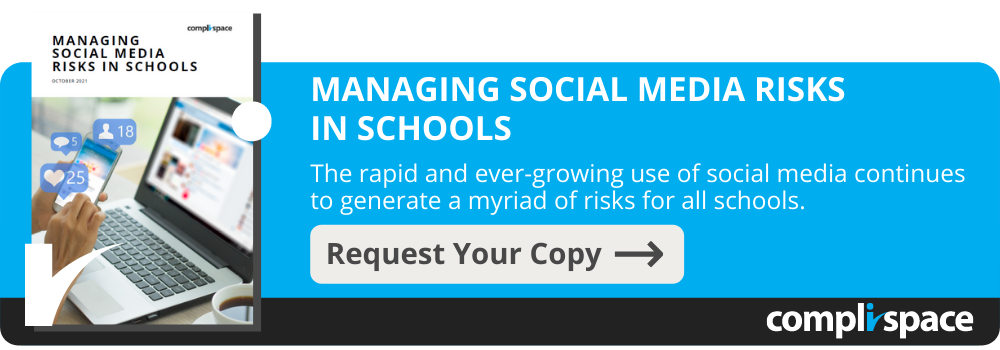Social media is undoubtedly a complex labyrinth for schools to exist within and navigate. Not only do schools have to manage the risks associated with employees and social media but they must also prioritise child safety and parent interactions in an ever-changing landscape. Despite the challenges posed by social media, it can be an invaluable tool for communication and information sharing among schools, parents and the wider school community. Schools often therefore need to perform a complicated balancing act.
On 8 September 2021, the High Court of Australia handed down a judgment that addressed the issue of whether an organisation or person may be liable for allegedly defamatory comments made by third parties in response to the organisation or person’s content on their Facebook page
The Voller Case
The High Court decision in the Voller case [2021] HCA 27* was an appeal from the Supreme Court of New South Wales and involved a young Aboriginal man, Dylan Voller. Mr Voller’s treatment while in custody in the Northern Territory attracted significant media attention and led to a Royal Commission. Following media attention, Mr Voller sued a number of news media organisations for defamation based on comments made about him by members of the public on the news media organisations’ Facebook pages.
One of the High Court judgments notes that:
“In the law of defamation, harm is understood to be occasioned to a person's reputation when a defamatory publication is made to a third party. Publication is the actionable wrong.”
The lawyers for the media organisations argued that their clients:
“did not make the defamatory comments available to the public, did not participate in their publication and were not in any relevant sense instrumental in their publication; they merely administered a public Facebook page on which third parties published material. They submitted to the Court of Appeal that they were more closely equivalent to the supplier of paper to a newspaper owner or the supplier of a computer to an author.”
However, in a 5:2 majority, the High Court dismissed the appeal and affirmed the Supreme Court ruling. The High Court articulated that the liability of a person/organisation as a publisher, in this case the news media organisations, depends on whether that organisation, by facilitating and encouraging the relevant communication “participated” in the communication of the defamatory statement to a third person. The Court decided that, by creating a public Facebook page and posting content on that page, the news media organisations facilitated and encouraged, and thereby assisted the publication of comments from third party Facebook users that were allegedly defamatory in nature. The organisations were therefore publishers of the third-party comments.
What the Voller Case Means for Schools
While the outcome of the Voller case is specific to media agencies, schools should be on notice of the decision in this case. The High Court decision makes it clear that this judgment has far-reaching implications, likely applying to all Facebook page owners who use their Facebook pages for business purposes such as schools.
The decision in this case has the potential to extend to instances of defamation on other social media platforms used for business purposes. As such, schools should be aware of their potential liability for defamatory content authored by other people in the comments of the school’s social media posts.
What Schools Should Be Aware of When Using Social Media
As social media continues to impact on the day-to day operation of schools, there are a number of risks associated with social media that schools should consider and regularly monitor.
School leaders and management should be aware of the following common risks associated with social media usage including issues relating to:
- privacy and confidentiality
- brand and reputation
- staff or student harassment, discrimination and bullying
- IT systems and security failures
- child safety and maintaining a child safe culture.
Strategies to Mitigate a School’s Risk When Using Social Media
While schools cannot possibly predict or prevent every incident related to social media usage, there are a number of strategies that schools can use to mitigate the risks of using social media.
These include:
- having a Social Media Business Usage Policy that sets out guidelines for the publication of content on the school’s social media platforms
- setting clear authoring permissions and protocols for editing and updating school social media platforms
- monitoring the comments section of all social media posts (this is particularly important in light of the High Court’s decision in the Voller case)
- if reasonably practicable/necessary, disabling the comments function on social media
- managing account settings to ‘block’ words or phrases that they consider inappropriate and automatically hiding/deleting ‘blocked’ content
- having a well-communicated complaints/feedback process for parents/carers and community members to use
- having staff, student and parent codes of conduct that address social media use and appropriate behaviour on social media
- regularly communicating with the whole school community regarding the purpose of the school’s social media platforms
- implementing training programs for staff, students and parents to provide support in the education of social media risks and promote the school’s expectations of online behaviour.
Most importantly, schools must ensure that they have proper policies and frameworks in place to best support social media use. Drafting a standalone social media policy is not enough.
CompliSpace has a comprehensive Human Resources Module that addresses social media usage in schools by staff and others and is supported by a Student Duty of Care Module that addresses student use of social media.
* Fairfax Media Publications Pty Ltd v Voller; Nationwide News Pty Limited v Voller; Australian News Channel Pty Ltd v Voller [2021] HCA 27
White Paper: Managing Social Media Risks in Schools
Further information regarding social media usage in schools is available to download in CompliSpace’s White Paper on Managing Social Media Risks in Schools.




